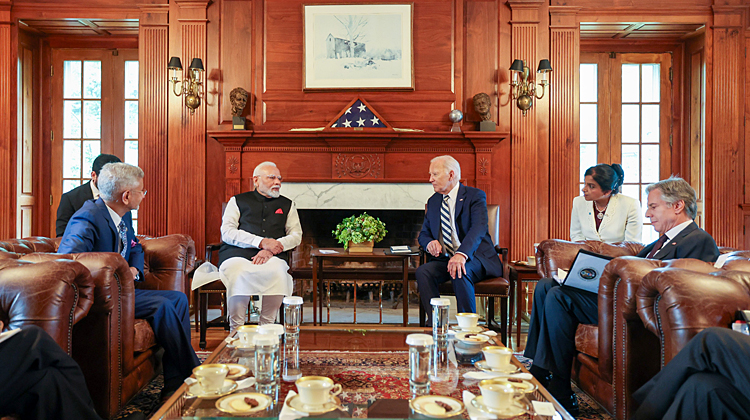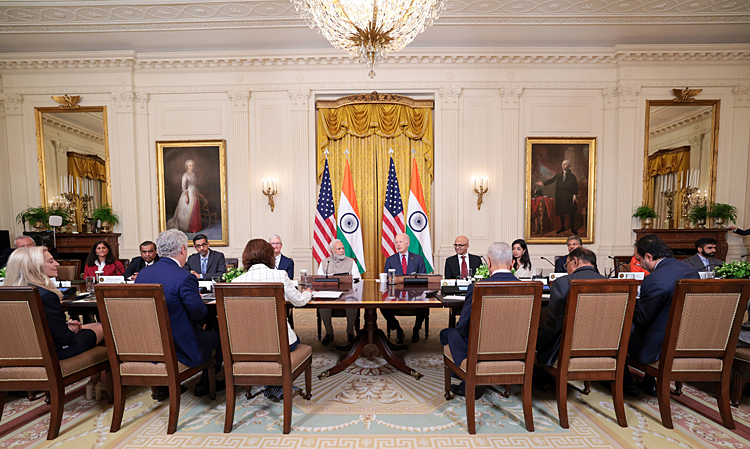INDIAN ARMED FORCES CHIEFS ON OUR RELENTLESS AND FOCUSED PUBLISHING EFFORTS

The insightful articles, inspiring narrations and analytical perspectives presented by the Editorial Team, establish an alluring connect with the reader. My compliments and best wishes to SP Guide Publications.

"Over the past 60 years, the growth of SP Guide Publications has mirrored the rising stature of Indian Navy. Its well-researched and informative magazines on Defence and Aerospace sector have served to shape an educated opinion of our military personnel, policy makers and the public alike. I wish SP's Publication team continued success, fair winds and following seas in all future endeavour!"

Since, its inception in 1964, SP Guide Publications has consistently demonstrated commitment to high-quality journalism in the aerospace and defence sectors, earning a well-deserved reputation as Asia's largest media house in this domain. I wish SP Guide Publications continued success in its pursuit of excellence.
Indo-US Semiconductor Fab
The fab will reportedly be the world’s first “multichip military fab,” manufacturing chips for applications in night vision, missile seekers, space sensors, drones, military communication, radar, and renewable energy
 |
The Author is Former Director General of Information Systems and A Special Forces Veteran, Indian Army |
According to the news reports of September 24, 2024, India and the US have agreed to set up an Indo-US national security semiconductor fabrication plant that will supply chips to the US Armed Forces, its allied militaries, and Indian Defence Forces. The fab will be set up in India in 2025 and will be called 'Shakti'. The India-US Semiconductor Plant reportedly is to come up at Jewar in Uttar Pradesh; the unit will manufacture chips for national security applications.
The above information came through a joint fact sheet released after Prime Minister Narendra Modi met with the POTUS Joe Biden in Delaware, USA. The first paragraph in the section on charting a technology partnership for the future said that Biden and Modi "hailed a watershed arrangement to establish a new semiconductor fabrication plant focused on advanced sensing, communication, and power electronics for national security, next generation telecommunications, and green energy applications". The joint fact sheet further stated that the fab will be established with the objective "of manufacturing infrared, gallium nitride and silicon carbide semiconductor", and will be enabled by the India Semiconductor Mission and a "strategic technology partnership between 'Bharat Semi', '3rdiTech', and the US Space Force".
India and the US have agreed to establish an Indo-US national security semiconductor fabrication plant, named 'Shakti', to be set up in Jewar, Uttar Pradesh, in 2025, focusing on chips for national security applications.
The US national security establishment has trusted the Indian start-up, '3rdiTech', led by two young entrepreneurs, Vinayak Dalmia and Vrinda Kapoor, with technology to produce chips that will then feed into America's security infrastructure as well as that of its allies like the UK. 3rdiTech, is collaborating with America's General Atomics on a series of significant projects to boost defence technology capacity in India.
The roots of the Indo-US Semiconductor Plant go back to the launch of the initiative on critical and emerging technologies (iCET) in January 2023, plus Prime Minister Narendra Modi's state visit to the US in June 2023. Kapoor participated in the Tech CEOs roundtable with PM Modi and President Biden. The joint statement then said, "The US Department of Defense's Space Force has signed its first International Cooperative Research and Development Agreement with Indian start-up 114 AI and 3rdiTech. Both companies will work with General Atomics to co-develop components using cutting edge technologies in AI and semiconductors respectively."

At a press briefing held soon after PM Modi landed in New York from Delaware, Foreign Secretary Vikram Misri, who also dealt with iCrET in his previous role as deputy NSA, referring to Indo-US Semiconductor Plant, said, "The Indian company in this case, 3rdiTech, is a pioneering company and it has been working for the last few years in close cooperation with Government of India entities and US entities. What this represents is first the increasing design and manufacturing capacities that are latent in India's semiconductor sector. We have always been known as a repository of design talent in so far as semiconductors are concerned. But this shows we are breaking into the fabrication part of it and with the right support, right incentives and right access to technology and partnerships from outside, Indian start-ups can actually make a global mark."
Concerns have been raised over potential security risks, including the possibility of compromised semiconductors embedded with malware, given the US's history of similar actions in geopolitical contexts.
Misri further said that in this case, there were "obviously national security elements" involved on both sides. "There will be applications of the products in national security areas. Whether you can call it a national security fab, I will leave the labelling and adjectives to you. But yes I would say this is an enormously encouraging development. And we are sure there are many more start-ups that are capable of reproducing what these companies involved in this particular venture have done."

Commenting on the agreement, Konark Bhandari of Carnegie India, said that while the details regarding the fab are scarce at the moment, it was a welcome step. "The ability to work in a trusted way with other countries and their suppliers, will be key for India, and for any other country, to position itself as a viable location for semiconductor operations. Even the 2022 US CHIPS and Science Act has been predicated on funding being allowed for a 'Secure Enclave' project. This project is intended to create a specialised facility to make chips for the defence establishment in the US."
Foreign Secretary Vikram Misri emphasized the growing semiconductor design and fabrication capacities in India and called the collaboration a landmark in advancing India's semiconductor ambitions.
This plant will reportedly be the first "multichip military fab" in the world. The advanced sensing infrared chips will be used for night vision, missile seekers, space sensors, weapon sights, soldier hand held sights, and drones. The advanced power electronic chips are to be used in satellites, drones, fighter aircrafts, high altitude pseudo satellites, electric vehicles, renewable energy, data centers, and railway engines. And advanced communication radio frequency chips will be used in military communication, satellite communication, electronic warfare jammers, radar and 5G/6G telecom. The manufacturers aim to produce 50,000 units every year to start with in phase 1. The fab will employ 700 people.
There is no doubt that this is an excellent development, especially since this will be the first multi-chip military gab in the world. At the same time, it implies transfer of technology from the US Space Force to India. Given the reliability factor of the US and its sordid pressure tactics against India, what could be the possible implications? Semiconductors carry software, which means building a trapdoor and/or embedding malware in the semiconductor is not difficult. Is the Indian Government aware that the US ensured such corrupted chips were supplied to Iran? In the exuberance of showing heady progress in the semiconductor field and showing jobs in the project, are we handing over total national security to the US? Certainly, serious introspection is warranted – going completely indigenous would be the safe option, even at the cost of some delay.





